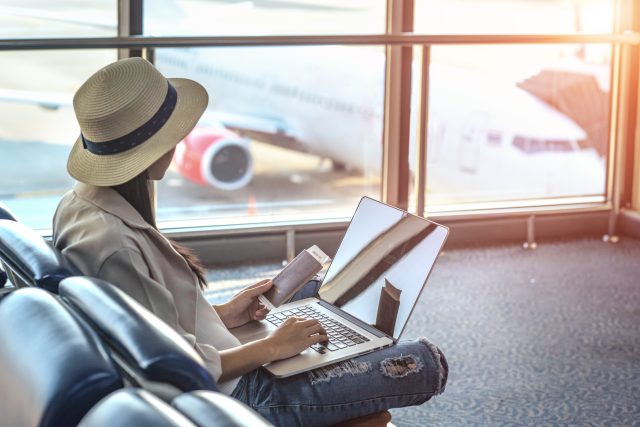This website uses cookies so that we can provide you with the best user experience possible. Cookie information is stored in your browser and performs functions such as recognising you when you return to our website and helping our team to understand which sections of the website you find most interesting and useful.
Asian travel set to recover, with AI and tech boosting drinks sales
Asia’s travel retail sector will soon recover, but new technology and AI will play a bigger role in sales, according to new regional research.

Speaking at a seminar on the first day of this year’s TFWA Asia Pacific Conference, the Pacific Asia Travel Association’s (PATA’s) head of Asia, Mayur Patel revealed how that the region is on track for its return to prosperity but highlighted how, in the future, technology would be used more freely – a method drinks companies are already witnessing for themselves.
Addressing a room full of delegates, buyers, drinks brand owners and distributors, Patel explained: “As the travel recovery trajectory remains firmly on track, with global flight seat capacity just 3% below pre-pandemic levels.”
According to PATA, the recovery of South East Asia began last spring, but North East Asia is still being impacted by China still recovering, a trend the industry has seen in its return to travel, wth last year showing the green shoots for a resurgence from companies including Pernod Ricard. Last September, Mohit Lal, chairman and chief executive officer of Pernod Ricard Global Travel Retail noted that “Asia Pacific and South-East Asia are still catching up due to a comparative delay in removal of restrictions. North Asia is still further behind, with Chinese consumers (the largest buyers of alcohol in GTR) still yet to return meaningfully to the market”.
Reinforcing this observation, Patel explained: “Focusing on the South East Asia sub-region, with its early recovery starting in April 2022, the capacity weakness is largely a function of the North East Asia market still being impacted by China’s recovery pattern, despites travel restrictions being eased. The importance of China to the whole Asia market cannot be underestimated. As this picks up, we will see stronger, robust growth rates over the next six months.”
PATA indicated that it will take until at least next spring to see the Asian market revived, but new technology and AI will lead the way. Here he talked about the key consumers and their mindsets that brand owners needed to be tapping into and noted: “Tapping into various generation clusters will be paramount.”
Mirroring this sentiment, Blockbar co-founder Dov Falic, highlighted the exact same point back in January when he outlined how the NFT platform has opened up the premium drinks market to younger, tech-savvy consumers.
Patel additionally illustrated how “the number of scheduled flights reflects an 87% recovery as we continue to see average capacity per movement increase” but admitted that the Asia Pacific region was not quite set to get back to prosperity until next spring. He reiterated: “We do not anticipate a full recovery in global capacity before March 2024,” but hinted that the future of GTR was about to become much more advanced, using digital capabilities to find new ways of selling.
Examples of this within the drinks industry across Asia include activations like the one Proof & Company, one of Asia Pacific’s leading independent spirits distributors, showing how SmartKiosk technology could offer consumers new ways of trialling drinks.
Elements of this, from many companies are predicted to begin being introduced into global travel retail in the near future as consumers seek out more customisable interactive experiences. Patel added: “This segment will utilise technological innovation and AI advancement throughout their ‘experiential journey process’.”
Related news
Suntory expands water education provision target for 2030

